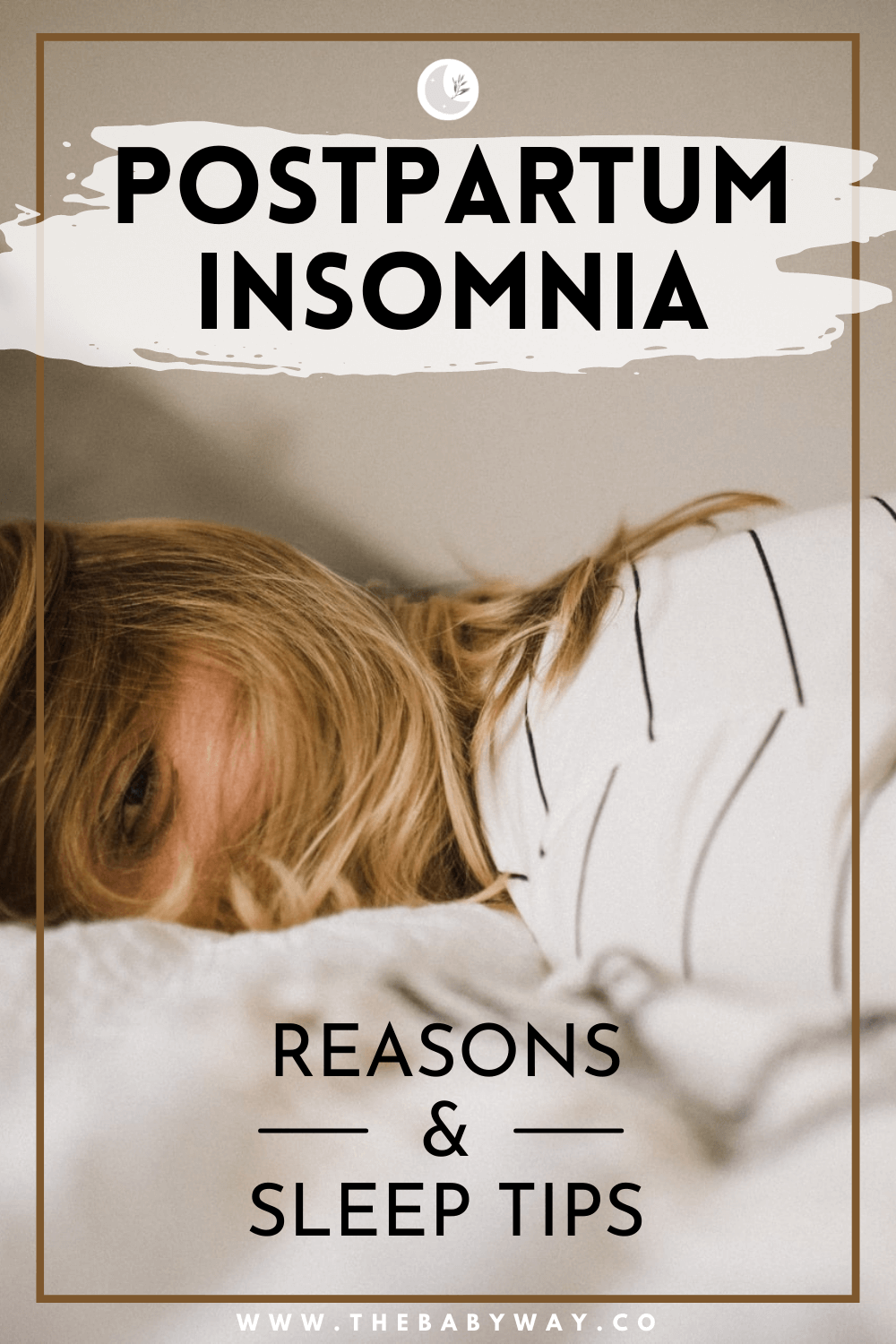When sleep for new mothers just won't come and how to deal with it
Tick Tock Tick Tock Tick Tock.
That's what I was hearing in my head whenever my baby was sleeping. A clock inside my brain, counting the minutes until the next big awakening of my baby.
You would think once your baby is finally asleep, you could sit down and breathe for a moment. But I couldn't find rest. I was definitely not at ease. I was anxious. There was a huge knot inside my chest. Every time she would make a noise, I lifted my head to see if she was awake.
Any time she slept, I felt that way. Day or night.
What happened to 'sleep when the baby sleeps'? Why couldn't I just sleep?
I guess as expectant moms we knew that our sleep would change. We had this image in our head of staying at home and cuddling to sleep with a super cute baby. We promise ourselves we will take care of ourselves after birth, we will take it slow and easy, we will sleep every opportunity we get.
But for a new mom, the reality often looks different.
Falling and staying asleep has never been more difficult. Even though we are completely sleep-deprived, our body is powered out, and our mind is exhausted.
Not being able to sleep is a horrendous feeling. Even more so when you know that now you cannot just lie down when you are finally ready to sleep. No, you have a baby to take care of. So you are counting down the minutes you lose forever to get the so needed rest.
Postpartum Insomnia Is Common and Real
"Why don't you sleep?" My husband would peek in and see me scrolling on my phone. I couldn't give him an answer. There was no apparent reason.
On the other hand, he didn't seem to have a problem sleeping. I would hear him breathe heavily after a few minutes. And there I was, still lying wide awake, even though I went to bed much sooner than him.
After some research, I found out that I was not the only one. Postpartum insomnia is a real thing and affects so many mothers. Many pregnant women will experience prenatal insomnia, especially in the third trimester. Unfortunately, the severe decline in sleep quality continues a long time after giving birth for many of them.
Postnatal insomnia can have severe effects on your physical and mental health. Patience gets thin and depressive moods increase. And together with already existing sleep deprivation and postpartum anxiety, it can be a real risk factor for postpartum depression or postnatal depression.
Typical Insomnia Symptoms
Insomnia is a sleep disorder that makes it hard for you to fall asleep, stay asleep, or impairs sleep quality due to many nightly wakings and the inability to fall back to sleep.
Typical postpartum insomnia symptoms are:
- difficulty to fall and stay asleep
- low sleep efficiency (total time in bed vs. time asleep)
- increased night wakings and being unable to fall back to sleep
- fatigue and inability to concentrate during the day
- extreme daytime sleepiness
- mood swings, depressive thoughts, irritability
Causes for Postpartum Insomnia
Changes in our sleep patterns are usually triggered by big life events, positive and negative. The arrival of a new baby is such a trigger because many other changes come along once you welcome a new baby to the family:
Typical postpartum insomnia causes are:
- Stress related to parenthood
- Postpartum depression
- Postpartum anxiety
- Physical changes occurring at night, e.g., breast engorgement, night sweats
- Hormonal changes
- Altered circadian rhythm due to fragmented baby sleep
- Alertness for the baby
Overcoming Postpartum Insomnia
After I was able to name my sleep problem, I started to do some research and tried out different ways to overcome my insomnia.
Now, solutions can be different for everybody, and they probably won't work instantly. But being aware and creating a healthy sleep hygiene will help.
Here are some techniques to improve your sleep quality and positive sleep behavior.
Find the triggers
Several things can contribute to postpartum insomnia. Day-to-day responsibilities, concerns about the new baby, or a compulsive need to check on them every minute. My first child was born a little catnapper. I was not familiar with this behavior, so it made me very anxious. For me, the trigger that kept me awake was the fear that she would wake up any moment.
Finding out your triggers is the first step in treating your insomnia. Often it has something to do with the new family situation and becoming a parent. Once you have identified your triggers, it's time to think about ways to address them. Ask your partner and family actively for help. Maybe you need a few hours away from the baby. Everybody needs a break. If the presence of your baby keeps you from getting rest during the day, ask a trustworthy person to take the baby for some time. I know during postpartum, we are often overwhelmed by all the things we need to do, yet we have trouble letting go or assigning these tasks to others. But this is crucial. Taking care of a baby is a lot to take on, and, as harsh as it sounds, we need to get over ourselves and think about the bigger picture. And that is that it gets done in the end. It doesn't matter how and by who.
Pinpoint the times you sleep better and worse
Falling asleep whenever the opportunity arises sounds easy. But our body doesn't work that way. Our circadian rhythm is already used to specific patterns of sleeping and staying awake, so you can't expect to fall asleep whenever you lie down. That's why the phrase sleep when the baby sleeps is kind of bad advice. 10 am naps may simply not work for you.
Don't feel the pressure to lay down every time your baby sleeps, but rather try to find out what times of the day you fall asleep the easiest and when not. Think about your nap and bedtimes before you had your baby.
Maybe after lunch, you notice having a regular low. Try to nap with your baby at this time or find someone to take care of your little one. Once you have figured out the best times, ensure that they are reserved for your rest. Lunch nap for me was always holy, so I would never make any appointments during this time.
Don't force sleep on yourself
When you find yourself unable to fall asleep, don't try to force it. Forget about the pressure of daytime naps (famous advice "sleep when the baby sleeps"). Falling asleep is not really under our direct control.
If you can't sleep, it is better to get up again, go to another space in your home, and do something quiet and relaxing. Only return to bed if you really feel sleepy. If you can't sleep and still stay in bed, you can develop an unhealthy link between your sleeping environment and your wakefulness. The pressure to fall asleep will increase, which will actually keep you even more awake.
A lot of daylight during the day
Newborns cannot distinguish between day and night. Therefore, we want to expose them to a lot of daylight during the day and darkness during the evening/night so that they can develop a sense of day and night. The same applies to us adults. Spend more time outside during the day and expose your body to a bright environment. This will naturally help your body feel more awake during the day and more sleepy during the evening when it gets darker. It even might be more helpful to skip daytime naps altogether but go to bed earlier. For some people, naps simply don't work, even with a baby, because they can cause nighttime sleep problems.
Create a sleep-inducing environment
Also, the right environment plays an important role in better sleep. Try to start some winding down routine. Minimize screen time before going to bed. The blue light emitted from screens leads to a lack of melatonin, the sleep-inducing hormone, and can stimulate you. Find some screen-free activities that are relaxing and calming. For example, I like to do a nice skin-care routine. It's the only time I get to take care of my skin, and I always feel good doing something for myself.
Make sure that your bedroom is a quiet, dark, and cool place. The right temperature will help to initiate sleep. The suggested temperature should be between 60 and 67 degrees Fahrenheit (16 - 19 degrees Celsius). You can also use earplugs to block out squeaking sounds many newborns make during their sleep. Don't worry, you will definitely hear your baby when she's awake and needs attention.
Check your nutrients
During pregnancy and after birth, your body can experience a deficiency in particular nutrients. Iron demands, for example, can drop, especially during pregnancy and in the early postpartum period. If you notice other symptoms of iron deficiency like weakness, dry lips, brittle nails, or paleness (I know many of these also come with sleepless nights), then it's definitely worth getting your iron levels checked by your doctor. Another mineral that is crucial for good sleep is magnesium. It regulates melatonin, which helps your body relax and your nervous system calm down. If you are nursing, also make sure to take your postnatal vitamins.
Analyze the night waking situation
Night wakings will become part of your life for a while now. The important thing is to keep them as low-key and quiet as possible for you and the baby, so both of you can find your way back to sleep easier. Preparing a bottle or nursing can stimulate you enough, so you will have trouble finding back to sleep afterward.
Therefore, set up the ideal night environment in advance for minimal effort. Always keep it dark and avoid checking your phone while feeding your baby. If you are bottle feeding, prepare all the supplies you need in advance next to your bed to prevent going back and forth to the kitchen. Have everything you might possibly need in reach, so you don't need to get out of bed. A water bottle, even a snack (no judgment, been there, done it), and diapers. The less action is necessary, the better.
Time will help
Parenting is a lifetime job that, unfortunately, will sometimes come with uncomfortable feelings. Mom guilt, anxiety, and stress may never completely disappear. But you will learn with your child, you will learn to trust your mom instincts, you will find ways to manage.
The newborn phase is very hard, and every mother doesn't matter if it's their first or fourth child, needs to get used to the new family dynamic that comes with a new baby.
Your child's sleep will also improve. Infant sleep gets better and as crazy as it sounds, your body will also get accustomed to sleeping less. But overall, sleep will get more predictable with time which will take some pressure off you as well.
This advice does not replace the help of a professional. If you are experiencing any postpartum depression symptoms, are continuously struggling with sleep, or feel the need for immediate help, never hesitate to consult with a doctor or a professional. Through therapy and insomnia treatment, they can further identify the underlying causes and help you manage your situation.





